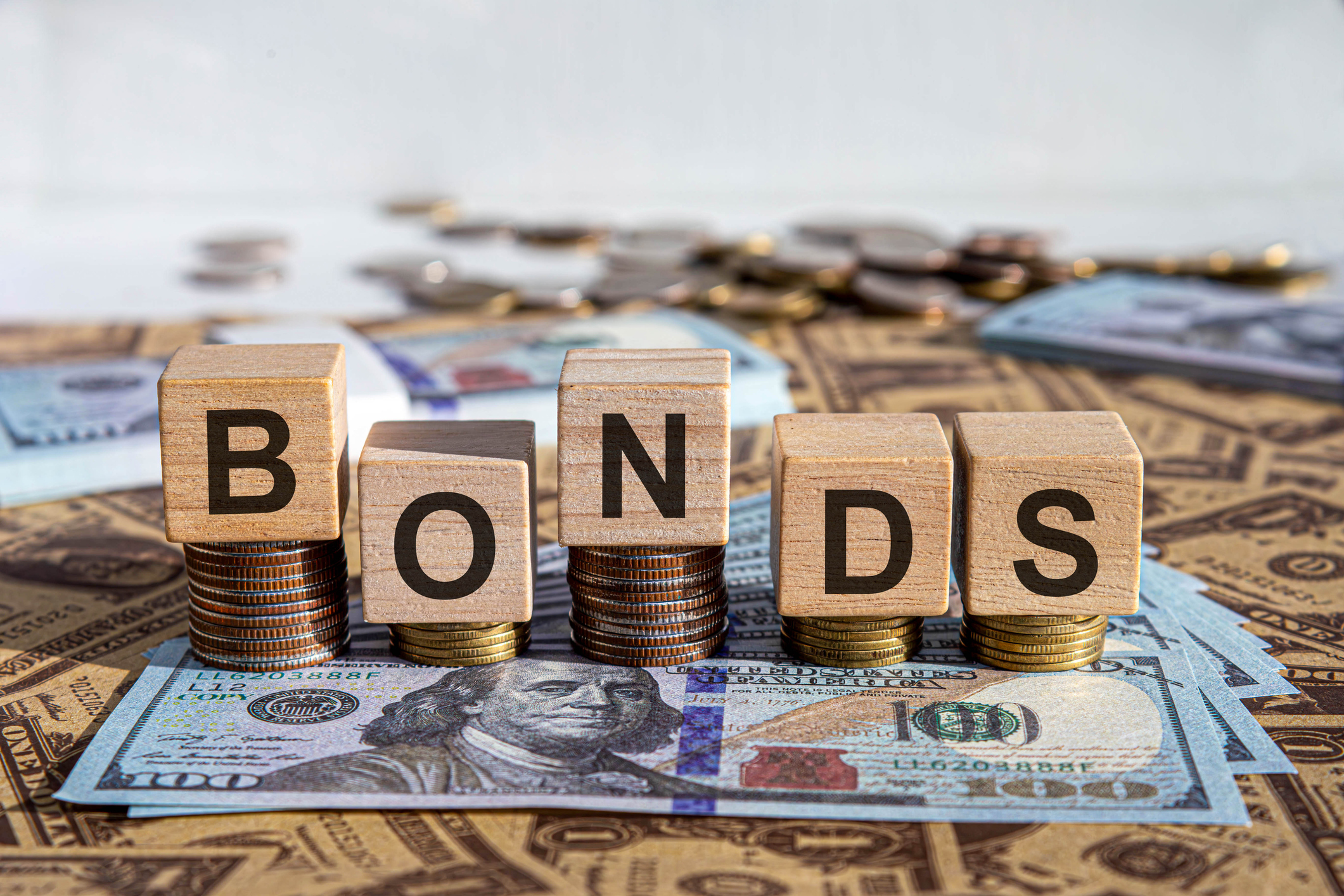CDs vs Bonds: Which Is Better for You?
If you're considering CDs vs bonds, here's a breakdown of how each works.

Profit and prosper with the best of Kiplinger's advice on investing, taxes, retirement, personal finance and much more. Delivered daily. Enter your email in the box and click Sign Me Up.
You are now subscribed
Your newsletter sign-up was successful
Want to add more newsletters?

Delivered daily
Kiplinger Today
Profit and prosper with the best of Kiplinger's advice on investing, taxes, retirement, personal finance and much more delivered daily. Smart money moves start here.

Sent five days a week
Kiplinger A Step Ahead
Get practical help to make better financial decisions in your everyday life, from spending to savings on top deals.

Delivered daily
Kiplinger Closing Bell
Get today's biggest financial and investing headlines delivered to your inbox every day the U.S. stock market is open.

Sent twice a week
Kiplinger Adviser Intel
Financial pros across the country share best practices and fresh tactics to preserve and grow your wealth.

Delivered weekly
Kiplinger Tax Tips
Trim your federal and state tax bills with practical tax-planning and tax-cutting strategies.

Sent twice a week
Kiplinger Retirement Tips
Your twice-a-week guide to planning and enjoying a financially secure and richly rewarding retirement

Sent bimonthly.
Kiplinger Adviser Angle
Insights for advisers, wealth managers and other financial professionals.

Sent twice a week
Kiplinger Investing Weekly
Your twice-a-week roundup of promising stocks, funds, companies and industries you should consider, ones you should avoid, and why.

Sent weekly for six weeks
Kiplinger Invest for Retirement
Your step-by-step six-part series on how to invest for retirement, from devising a successful strategy to exactly which investments to choose.
Are you trying to decide between investing in CDs vs bonds? Both offer you a secure way to earn a return. The returns will usually be modest relative to other investments, but both offer investment safety with steady returns.
Assessing risk, potential return and term of the investment will help you decide between a CD or a bond. Weighing the differences is essential to finding the right fit for you and your money.
Below is a breakdown of how each works, giving you a chance to see which one is the best fit for you.
What is a certificate of deposit (CD)?

CDs are a type of savings account you can open at a bank or credit union. CDs are insured by the Federal Deposit Insurance Corporation (FDIC) or the National Credit Union Administration (NCUA) up to $250,000 per account, reducing your risk to zero.
When you open a CD, you agree to leave the money on deposit for a set amount of time or incur a penalty for withdrawing funds early. In exchange, the bank pays you a fixed annual percentage yield (APY), making CDs a safe, predictable way to grow your money.
It also means if the Fed decides to cut rates in the future, you won't have to worry about your rate lowering since you locked it in.
Below, you can compare CD rates and terms quickly:
CDs vs bonds: When to choose a CD
Here are some reasons to consider opening a CD:
It can help you reliably save for the near future. Deciding how long to keep your money on deposit is crucial because there are penalties for early withdrawal. A three- or five-year CD could help you save for an extended vacation or the down payment on a home. CDs with a shorter term can help you accumulate earnings to build an emergency fund or gain fiscal discipline by putting the money temporarily out of reach.
Popular when interest rates are high. A crucial difference between CDs and bonds lies in how CDs react to increased interest rates. When interest rates rise, the APY usually increases. That means that CD rates offered by banks go up when the interest rates climb.
Risk-adverse. CDs might be a better option for the most risk-averse investors. They're ideal for reaching short-term savings goals because you can choose from a variety of term lengths. CDs are great for savings goals because you can earn more interest than a typical savings account without locking your money away for too long or risking losing it.
Terms vary by bank. Make sure to compare interest rates, early withdrawal penalties and the amount of time you're willing to lock your cash away, before opening a CD. No-penalty CDs can be useful when there is a possibility you may need the principal back sooner than a given CD term.
What is a bond, and what do you get when you buy one?

Bonds are debt obligations issued by governments, government agencies and corporations, used to raise capital or fund operating expenses. When you buy a bond, you are lending money to the issuer, and the issuer promises to pay you periodic interest payments (or coupons) and to repay the face value of the bond (or par value) upon maturity.
When you buy a bond, you receive periodic interest payments known as coupons. The coupon payments, which may be made quarterly, twice yearly or annually, are expected to provide regular, predictable income to you.
Longer maturity terms make bonds a lower-maintenance investment. You can lock in a stream of income for up to 30 years and avoid having to seek reinvestment at a potentially lower rate.
Bonds are not FDIC-insured and come with some risk. When buying corporate bonds, you can manage the risk by purchasing investment-grade bonds that have earned a high rating from the credit-rating agencies. The least risky are Treasury bonds and U.S. savings bonds that are backed by the full faith and credit of the U.S. government.
Government bonds can be purchased directly at TreasuryDirect.gov. You can buy Treasury bonds and savings bonds directly from the federal government without any fees. They can also be purchased through a brokerage.
When to choose bonds
Below are some reasons to consider a bond:
Popular when interest rates are low. A crucial difference between CDs and bonds lies in how they react to increased interest rates. When interest rates rise, bond prices decrease. That means that a bond will lose market value if interest rates rise. That is, if you sold the bond on the secondary market, it would go for less because other bonds would be available that pay a higher rate of return.
Higher risk tolerance. If you are more risk-tolerant and looking for greater returns, you might prefer to put your money in bonds. Most bonds pay a steady income, so they're useful if you are looking for a fixed income stream.
Diversification. And bonds can also be used to diversify your investment portfolio and help hedge your investments against the fluctuations in the stock market.
CDs vs bonds: Which is right for me?
CDs have minimal risk and have more flexibility compared to bonds with respect to how long you need to put your money out of reach.
Bonds carry more risk. The issuer could default and changes in interest rates could devalue your investment. But, government bonds are considered risk-free and receive favorable tax treatment.
Short-term investors should give CDs a close look. You can buy a CD with a three-month term if you are undecided or need the money back in your hands sooner rather than later.
Long-term investors may see bonds as a better option, especially when you are saving for education. U.S. savings bonds are easy to buy; the minimum investment is $25, and you might be able to avoid federal tax on the interest if you use them for qualified education expenses.
Bottom line on CDs vs bonds
CDs and bonds might offer smaller returns, but they carry little or no risk of principal loss. Both require you to “lock up” your money for a specified period to receive the maximum return and avoid possible penalties.
Important factors to consider are your risk tolerance, how the Fed handles rates in the future and how potential returns compare between CDs and bonds.
Related Content
Profit and prosper with the best of Kiplinger's advice on investing, taxes, retirement, personal finance and much more. Delivered daily. Enter your email in the box and click Sign Me Up.

Donna joined Kiplinger as a personal finance writer in 2023. She spent more than a decade as the contributing editor of J.K.Lasser's Your Income Tax Guide and edited state specific legal treatises at ALM Media. She has shared her expertise as a guest on Bloomberg, CNN, Fox, NPR, CNBC and many other media outlets around the nation. She is a graduate of Brooklyn Law School and the University at Buffalo.
-
 Dow Adds 1,206 Points to Top 50,000: Stock Market Today
Dow Adds 1,206 Points to Top 50,000: Stock Market TodayThe S&P 500 and Nasdaq also had strong finishes to a volatile week, with beaten-down tech stocks outperforming.
-
 Ask the Tax Editor: Federal Income Tax Deductions
Ask the Tax Editor: Federal Income Tax DeductionsAsk the Editor In this week's Ask the Editor Q&A, Joy Taylor answers questions on federal income tax deductions
-
 States With No-Fault Car Insurance Laws (and How No-Fault Car Insurance Works)
States With No-Fault Car Insurance Laws (and How No-Fault Car Insurance Works)A breakdown of the confusing rules around no-fault car insurance in every state where it exists.
-
 Dow Adds 1,206 Points to Top 50,000: Stock Market Today
Dow Adds 1,206 Points to Top 50,000: Stock Market TodayThe S&P 500 and Nasdaq also had strong finishes to a volatile week, with beaten-down tech stocks outperforming.
-
 No-Fault Car Insurance States and What Drivers Need to Know
No-Fault Car Insurance States and What Drivers Need to KnowA breakdown of the confusing rules around no-fault car insurance in every state where it exists.
-
 7 Frugal Habits to Keep Even When You're Rich
7 Frugal Habits to Keep Even When You're RichSome frugal habits are worth it, no matter what tax bracket you're in.
-
 The Best Precious Metals ETFs to Buy in 2026
The Best Precious Metals ETFs to Buy in 2026Precious metals ETFs provide a hedge against monetary debasement and exposure to industrial-related tailwinds from emerging markets.
-
 For the 2% Club, the Guardrails Approach and the 4% Rule Do Not Work: Here's What Works Instead
For the 2% Club, the Guardrails Approach and the 4% Rule Do Not Work: Here's What Works InsteadFor retirees with a pension, traditional withdrawal rules could be too restrictive. You need a tailored income plan that is much more flexible and realistic.
-
 Retiring Next Year? Now Is the Time to Start Designing What Your Retirement Will Look Like
Retiring Next Year? Now Is the Time to Start Designing What Your Retirement Will Look LikeThis is when you should be shifting your focus from growing your portfolio to designing an income and tax strategy that aligns your resources with your purpose.
-
 I'm a Financial Planner: This Layered Approach for Your Retirement Money Can Help Lower Your Stress
I'm a Financial Planner: This Layered Approach for Your Retirement Money Can Help Lower Your StressTo be confident about retirement, consider building a safety net by dividing assets into distinct layers and establishing a regular review process. Here's how.
-
 Stocks Sink With Alphabet, Bitcoin: Stock Market Today
Stocks Sink With Alphabet, Bitcoin: Stock Market TodayA dismal round of jobs data did little to lift sentiment on Thursday.